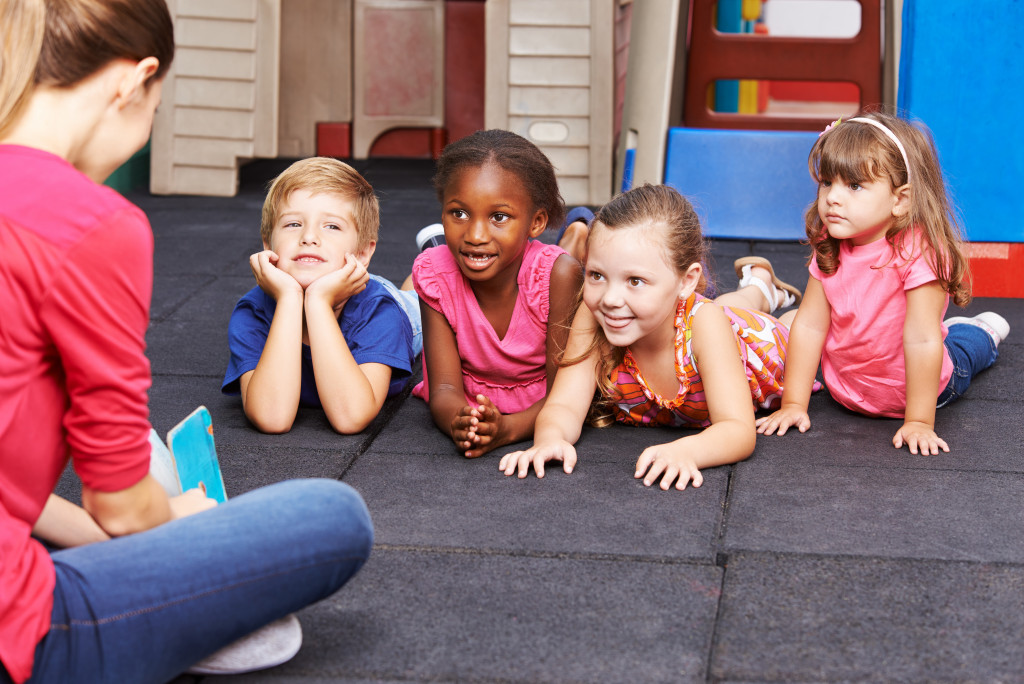- Social skills development in early childhood is essential for a child’s overall growth and advancement.
- Play-based activities such as role-playing, cooperative games, sharing exercises, and conflict-resolution scenarios can help foster social skills development.
- Parents should provide a supportive atmosphere that encourages social interaction and positive behavior.
- Low-income families can access affordable daycare options through government agencies, non-profit organizations, or community initiatives.
- Daycare centers provide quality childcare while parents are at work or school and promote social skill development with activities.
In early childhood, the primary focus of learning is often on academic subjects like reading, writing, and math. However, social skills development is equally important for young children’s overall growth and development.
Research has shown that social skills development is critically important for children’s success in school and life. Children with strong social skills are likelier to have positive relationships with peers, succeed academically, and have better overall mental health.
As they grow into adults, these skills help them develop meaningful connections with others and advance professionally.
This post explores the importance of social skills, the benefits of social skills development, and play-based activities that can help foster children’s social skills.
Benefits of Social Skills Development
Social skills development provides many benefits for children. According to studies, children with strong social skills have:
Improved Communication and Language Skills
Social skills involve communicating and connecting with others, contributing to a child’s overall language and communication development. Children who develop social skills early on tend to have better language skills as they are exposed to various social interactions that enhance language proficiency.
Enhanced Empathy and Understanding of Others
A child’s ability to empathize and understand the emotions of others is a crucial factor in successful socialization. Children who learn to recognize and express their feelings also build this awareness in others. This promotes better communication and the ability to resolve conflicts effectively.
Positive Relationships and Friendships
Children with strong social skills are more likely to have positive relationships with peers, which is vital for their overall development. They are also more likely to develop a sense of individual identity and maintain healthy friendships through school and beyond.
Increased Self-Confidence and Self-Esteem
Social skills provide children with a sense of self-confidence and self-esteem. Children are more likely to feel positive about themselves when confident interacting with others.
Play-Based Activities for Social Skills Development
Play is essential for children’s overall development and is a great way to develop social skills. Playing games teaches children valuable social skills like cooperation, communication, and empathy.
Here are some examples of play-based activities that can foster social skills development in young children:
Role-Playing and Pretend Play
Encourage children to express their thoughts and feelings through role-playing games and pretend play. This helps develop social skills such as communication, cooperation, and empathy.
Cooperative Games and Team-Building Activities
Cooperative games and team-building activities help children develop communication and problem-solving skills while working towards a shared goal. Games like hide-and-seek, musical chairs, and tag are excellent examples of cooperative games for children.
Sharing and Turn-Taking Exercises
Learning to share and take turns is essential for social skills development for young children. Simple activities like playing catch or taking turns with toys can teach children how to share and take turns.
Problem-Solving and Conflict Resolution Scenarios
Conflict resolution is an essential social skill; play-based activities can effectively teach these skills. Children can learn how to resolve conflicts and solve problems using skits, role-playing games, and other interactive activities.

Creating a Supportive Environment
The environment a child grows up in plays a crucial role in their social development. Thus, parents must provide a supportive atmosphere encouraging social interaction, positive behavior, and social norms.
Some ways to achieve this include setting aside specific times for family play, encouraging sharing among siblings and friends, discussing rules and expectations around positive behavior, and modeling positive social skills.
Enrolling Your Child in a Daycare Center
Enrolling your child in a daycare center can promote their social development. At daycare centers, children interact with their peers and participate in various activities that develop their social skills.
Activities such as circle time, group storytelling, and craft-making are examples of activities that encourage social skill development. Daycare providers also promote socialization by encouraging children to communicate effectively, sharing their ideas, and respecting diversity, fostering inclusivity and acceptance.
Contrary to popular belief, finances do not have to be a barrier to enrolling your child in a daycare center. Many states offer publicly funded daycare options to lower-income families. Low-income daycare centers often receive funding or support from government agencies, non-profit organizations, or community initiatives to make childcare accessible to economically disadvantaged families.
The goal is to ensure that children from low-income households can access safe, nurturing, and educational environments while their parents or guardians work or attend school. It aims to provide affordable and quality childcare options for families who cannot afford traditional daycare services.

In conclusion, social skills development is crucial to children’s growth and development. It helps them form positive relationships with peers, communicate effectively, and develop self-confidence. Play-based activities are a fun and effective way to foster social skills development in young children.
By incorporating activities like cooperative games, role-playing, and problem-solving scenarios, we can help children develop the critical social skills they need to thrive in school and beyond.

